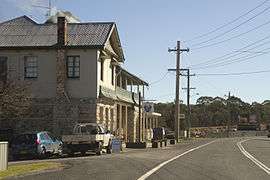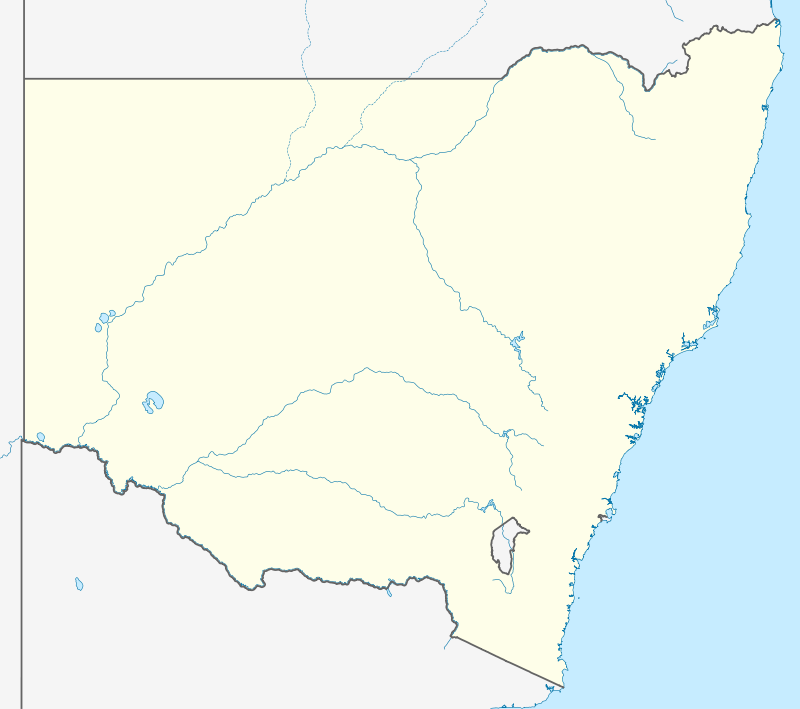Capertee, New South Wales
Capertee is a village 45 km north of Lithgow, New South Wales, Australia. It is on an elevated site (800 metres) above the Capertee Valley. In 2016, the town had a population of 145 people.[1] Situated on the Castlereagh Highway (previously known as the Mudgee Road) between Lithgow and Mudgee, Capertee is surrounded by National Parks and grazing land. Principal employment is in coal mining, farming and tourism related services. The Capertee Valley forms a part of the catchment area of the Hawkesbury River.
| Capertee New South Wales | |
|---|---|
 | |
 Capertee | |
| Coordinates | 33°09′S 149°59′E |
| Population | 145 (2016 census)[1] |
| LGA(s) | City of Lithgow |
| State electorate(s) | Bathurst |
| Federal Division(s) | Calare |
History
Prior to European settlement, the Caperteee district was occupied by the Wiradjuri people. The first European explorer to traverse the district was James Blackman, who journeyed through to the Mudgee area in 1821. Sheep properties were later established in the area during the 1840s, producing quality wool.
The town itself dates from the time of the establishment of the railway station in 1882. The station and nearby station master's residence date from this period while several other extant buildings date from the late 19th and early 20th century. Henry Lawson mentions the wild beauty of the Capertee area in his poem "Song of the Old Bullock Driver" which was published in Verses, Popular and Humorous (1900).
From 1882 Capertee was a temporary terminus of a railway branch line from Wallerawang on the main Western railway line. When the line was extended to Mudgee, there was no flat ground on which to build a crossing loop, so Capertee ended up with an unusual dead-end crossing siding instead. The line still operates although the railway station is closed.
Amenities
Capertee has a public school, police station, bush fire brigade hall, community hall (Progress Hall), public house (Royal Hotel), public telephone, two (rare) fibro constructed churches, and a combined garage/shop/post office. A community market is held on the third Sunday of each month in the Progress Hall.
Tourism
Capertee is located in an area which is popular with landscape painters, photographers, bird watchers and walkers. In the (2007) US published book Fifty Places to Go Birding Before You Die, author, Chris Santella lists Capertee Valley as one of only two locations in Australia selected in his top 50 world bird watching locations. Bird watchers are attracted by the diverse birdlife in the area. One "destination" bird is the rare regent honeyeater (Xanthomyza phrygia). Pearsons Lookout located 2 km south of the town offers views of Capertee valley.
See also
References
Notes
- Australian Bureau of Statistics (27 June 2017). "Capertee (state suburb)". 2016 Census QuickStats. Retrieved 15 April 2018.

Sources
- Jefferys, Bruce.The Story of Capertee
- Santella, Chris. Fifty Places to Go Birding Before You Die, Stewart, Tabori & Chang, New York 2007, ISBN 978-1-58479-629-9